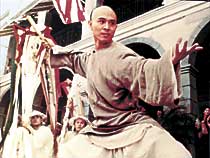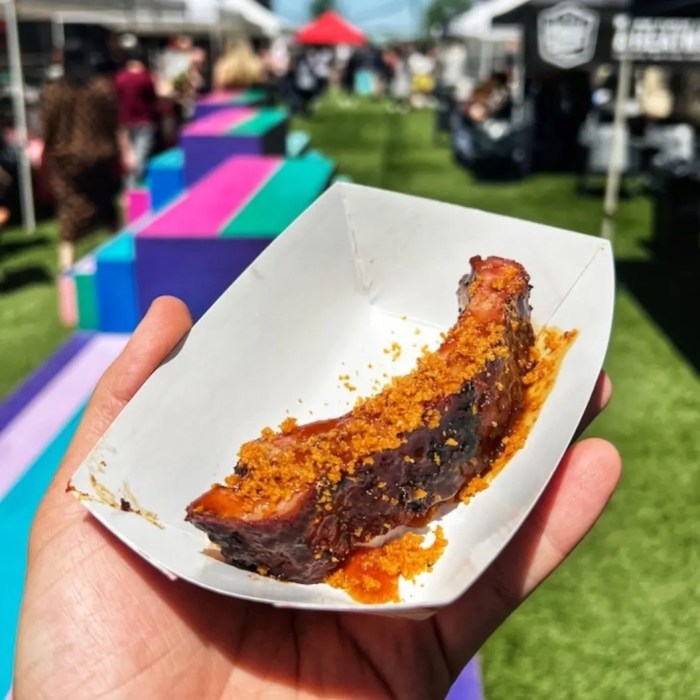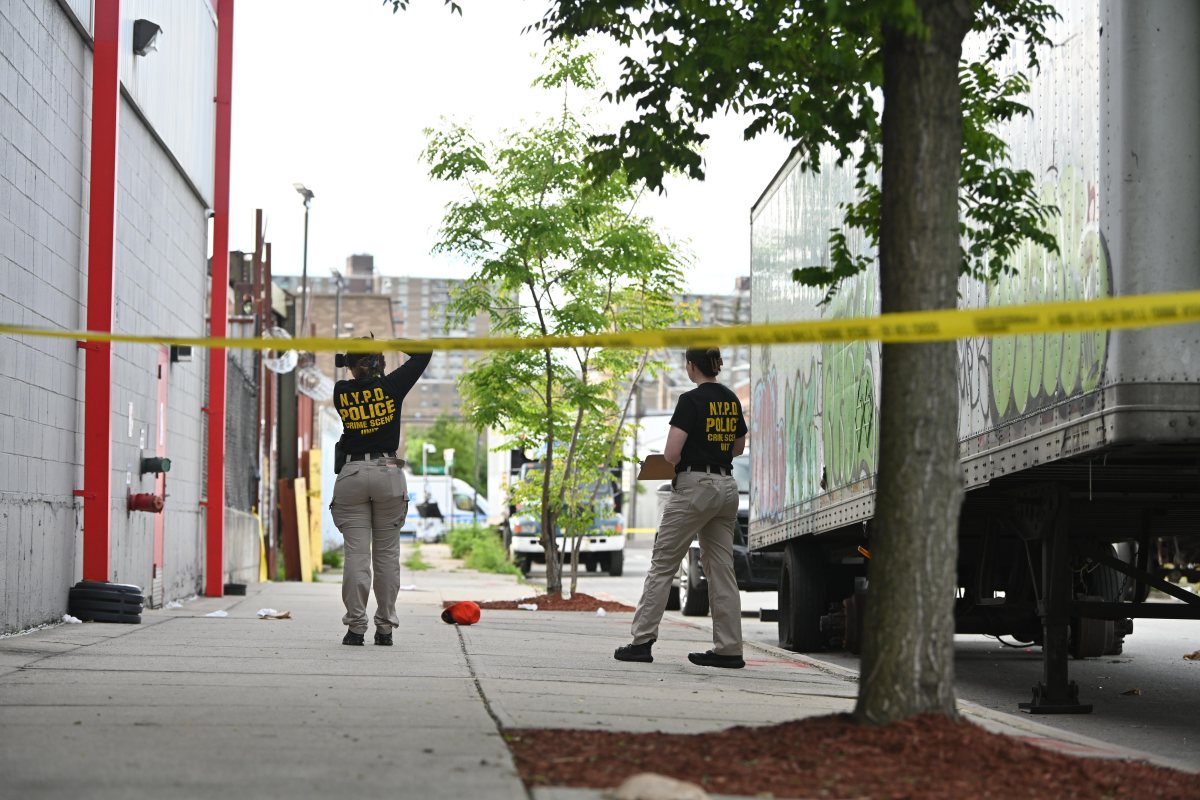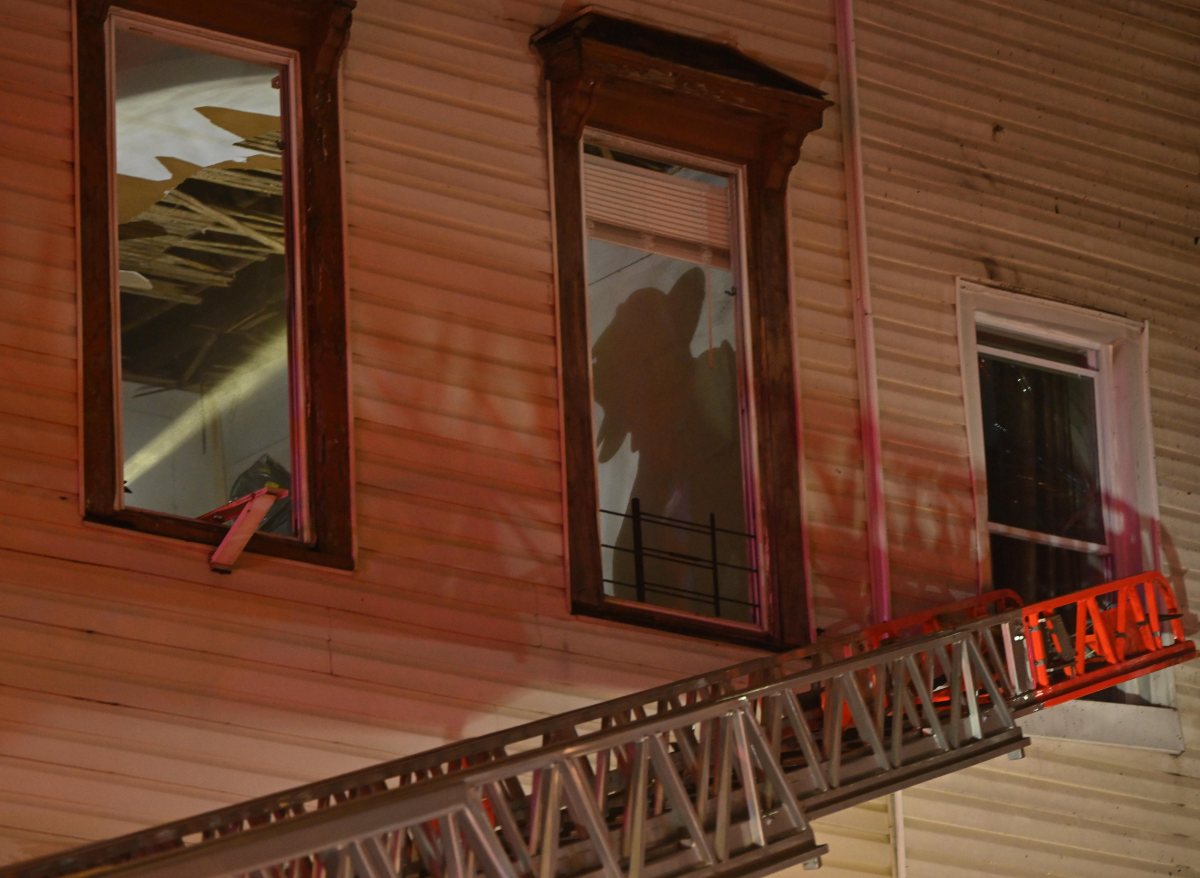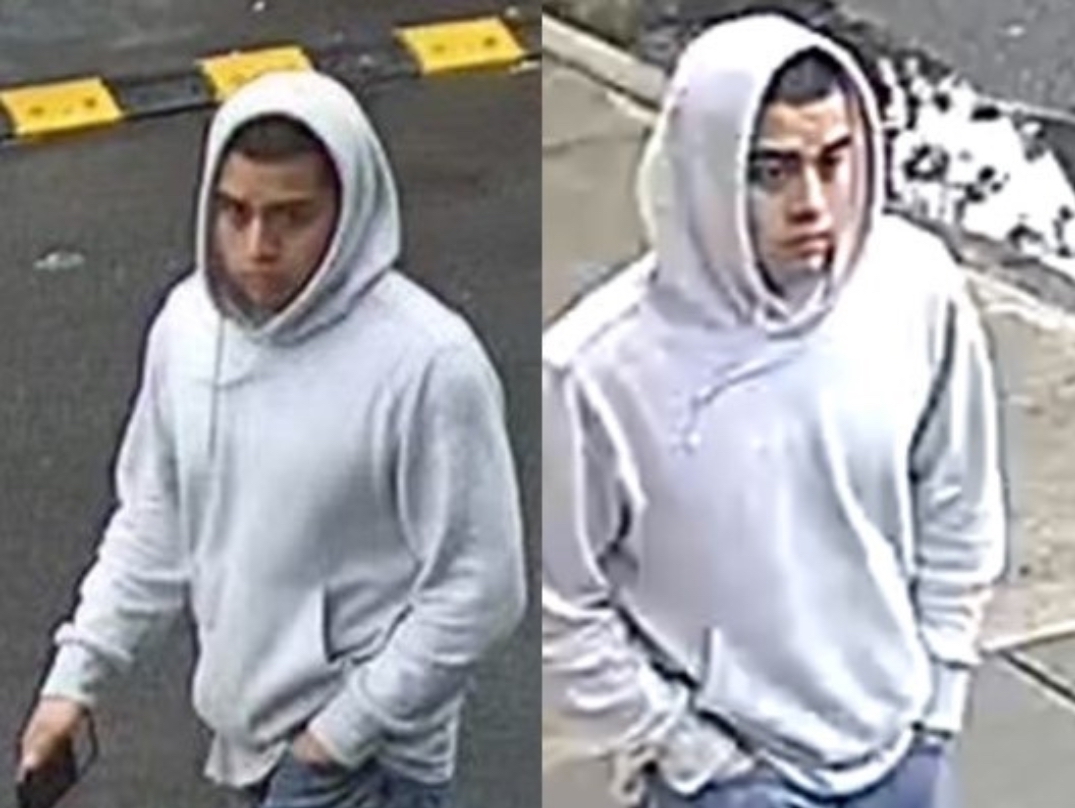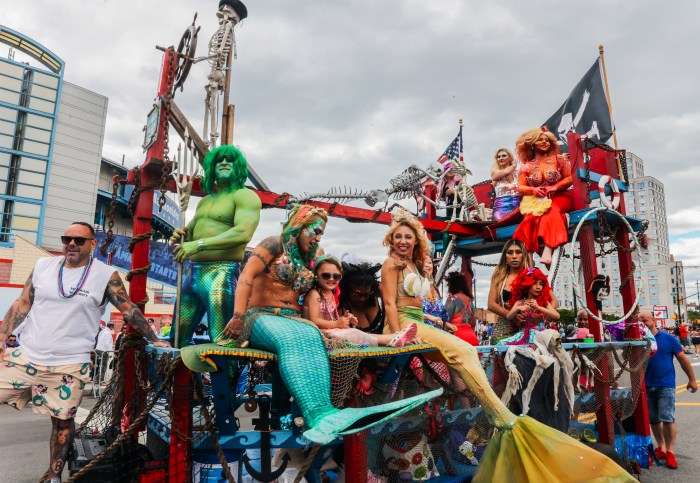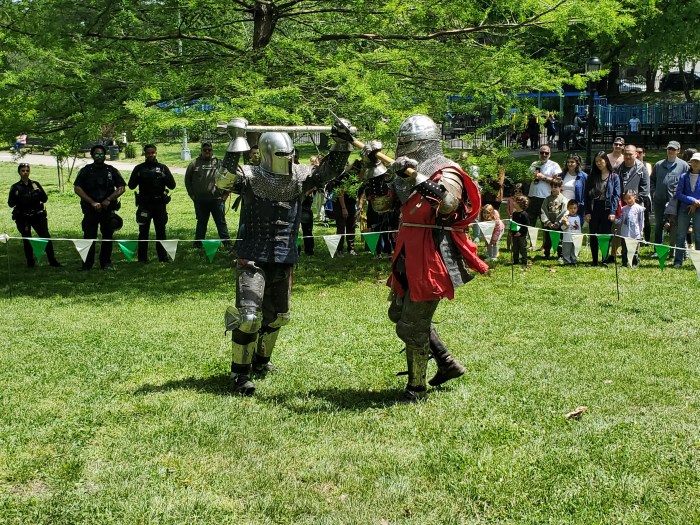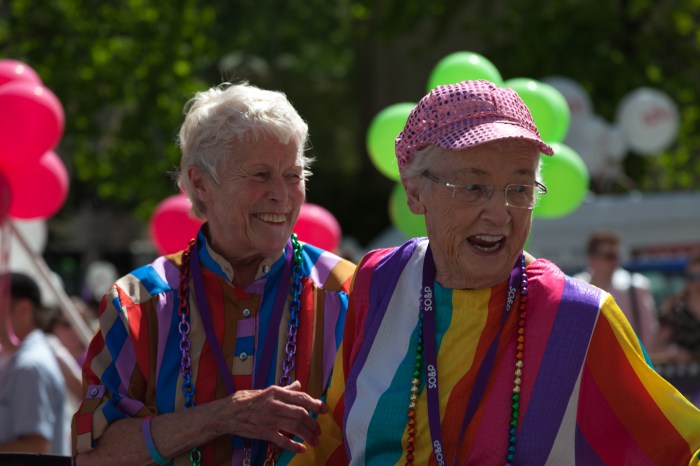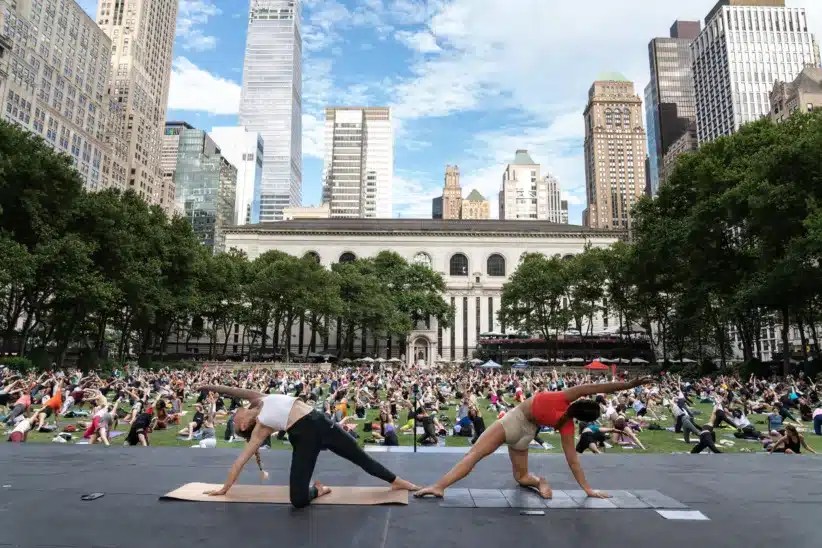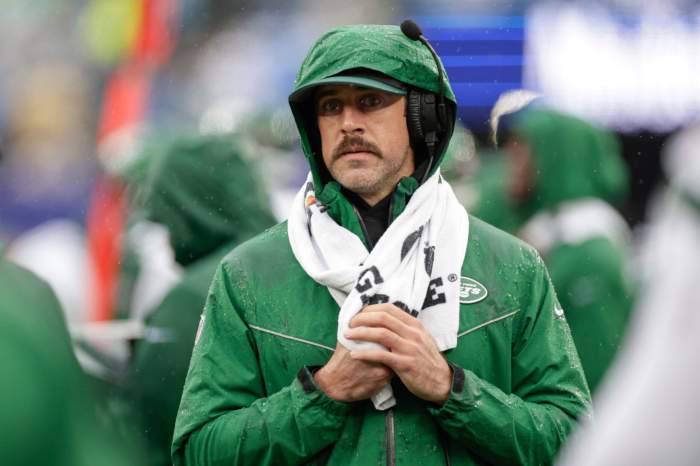Martial arts cinema is still rubbing its
dazzled eyes after being dragged out into the sunlight. The genre
has spent most of the last three decades as a cave dweller in
America, inhabiting rattletrap grind-house theatres, seedy video
shops and off-hours TV slots.
But cultists aren’t entirely surprised by the explosion into
mass popularity – they’ve spent years pleading that "you’ll
love it if you just give it a chance."
What is shocking is that these so-called "chopsocky"
flicks suddenly seem to have become not just popular but respectable.
Take, for example, BAM Rose Cinemas’ "Dance of the Dragon:
Martial Arts on Film," a 12-film retrospective beginning
this Saturday, Nov. 10. It is presented in conjunction with Fred
Ho’s martial arts-inspired musical theatre piece, "Once
Upon a Time in Chinese America," and a martial arts workshop
with film veterans Hu Jianqiang and Gordon Liu. (For those who
can’t get enough bone crunching, the series also coincides with
Subway Cinema’s "Old-School Kung Fu Fest" at Cinema
Village in Manhattan.)
"We have put aside some of the fantastical films and some
of the modern action films to focus specifically on Hong Kong
historical epics, with a few exceptions," says Florence
Almozini, co-programmer for BAMcinematek, the repertory film
program. Within this limitation, the series covers a broad range
of different styles and major figures. It even makes room for
a samurai piece from Japan, "Sword of Doom" (1966),
by Kihachi Okamoto, "to demonstrate the close link between
the two genres," says Almozini. ("Sword of Doom"
will be screened on Nov. 25.) Indeed, the Hong Kong film industry
threw itself into martial arts in the late ’60s as a direct response
to the popular wave of Japanese imports.
You don’t have to be an art cinema curator to note that "Crouching
Tiger, Hidden Dragon" is in a similar trailblazing position.
But the Oscar-winning hit would never have existed without the
inspiration of late master King Hu’s work, such as "The
Valiant Ones" (1975), which screens at BAM on Nov. 17 in
a recently restored print.
During the kung fu frenzy of that decade, Hu stood apart with
several elegantly crafted swordplay pieces. His virtuosic use
of space and rhythm is evident here as Ming Dynasty patriots
engage Japanese pirates in quicksilver duels across seashores
and through forests reminiscent of Chinese scroll paintings.
(The Film Society of Lincoln Center will also show Hu’s 1969
magnum opus, "A Touch of Zen," on Wednesday, Nov. 14.)
At the other end of the spectrum, elegance is rarely a concern
for prolific director-producer Wong Jing. His "New Legend
of Shaolin" (1994) displays the gonzo silliness that has
made him one of Hong Kong’s most consistently successful (and
in some quarters, most reviled) filmmakers.
Jet Li, now Hollywood’s latest kung fu poster boy, was at about
the summit of his Asian popularity at the time of the film’s
release. He kicks his way gamely through Wong’s stew of Farrelly
Brothers-like comic relief and head-scratching sights, like the
villain’s anachronistic silver tank. Just try not to be entertained.
The director seems to challenge his viewers, and it’s tough to
argue with him. "New Legend" will be screened on Nov.
11.
Silliness of a higher level infuses Jackie Chan’s "The Legend
of Drunken Master" (1994), which is actually an Americanized
edit of his blockbuster, "Drunken Master II." This
intoxicating combat farce spoofs the genre’s most enduring hero,
Wong Fei-Hung, a real 19th-century fighter and healer whose exaggerated
exploits have figured in more than 100 movies.
Chan subverts the image of a stoic pillar of Confucian values,
portraying the young Master Wong as a scamp and disobedient son
whose fighting skills peak when he’s plastered. Audiences who’ve
only seen Chan’s recent American work invariably gasp and whoop
in exhilaration at the rubber-limbed, slapstick action, which
seems the work of a performer demonically possessed.
Almozini aptly describes "The Legend of Drunken Master"
as Chan’s "most astonishing and accomplished film to date,"
not just for its escapist pleasures but its "focus on Western
imperialism" – Wong Fei-Hung confronts corrupt European
officials stealing Chinese national treasures.
This explicitly patriotic streak emerges not infrequently in
martial arts movies. Like the Hollywood Western, it’s a mythmaking
form that engages with a people’s feelings about national history,
honor and heroism.
The ultimate example in our era is certainly Hong Kong cinema
giant Tsui Hark’s six-film "Once Upon a Time in China"
(1991-93) series, which, Almozini notes, "almost single-handedly
revitalized the historical martial arts film." BAM showcases
the first three chapters (Dec. 2, 9 and 16) of "Once Upon
a Time in China," offering yet another take on the Wong
Fei-Hung legend. (Indeed, BAM’s series contains its own Wong
mini-fest, also including the ’92 parody, "Once Upon a Time
a Hero in China" to be screened Dec. 8.)
Tsui lights the fuse on a human powder keg of Cantonese peasants
and Yankee soldiers, imperial officials and European bureaucrats,
Buddhist priests and Christian missionaries. Straddling the divide
is Master Wong (Jet Li in his definitive role), an idealized
vision of the Chinese Everyman, maintaining courage and an open
heart in the face of bewildering, brutal change.
At a time when a new collision of East and West seems ready to
split the world apart, he is an unexpectedly moving hero – even
in those rare moments when both his feet are planted on the ground.
"Dance of the Dragon: Martial Arts
on Film" runs Saturdays and Sundays from Nov. 10 through
Dec. 16 at BAM Rose Cinemas, 30 Lafayette Ave. Tickets: $9, $6
seniors 65 and over, children under 12. For movie times, visit
www.bam.org on the Web or call (718) 636-4100.
"Once Upon a Time in Chinese America A Martial Arts Ballet
and Music-Theater Epic" runs Nov. 7, Nov. 9 and Nov. 10
at 7:30 pm and Nov. 11 at 3 pm in the BAM Harvey Theatre, 651
Fulton St. Tickets: $20, $30 and $45.
Martial Arts Workshop is Nov. 10 at 2 pm in the Hillman Attic
Studio, 30 Lafayette Ave., fourth floor. Tickets: $20.


